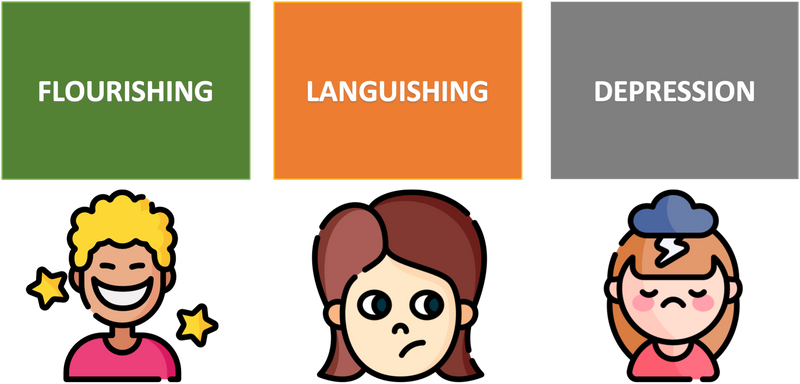 Image by Wayhome studio on Freepik
Image by Wayhome studio on Freepik
Do you feel like your friends are flourishing and you're not? They're in supportive relationships, happy, motivated, thriving, doing what they love, and facing life with hope and resilience!
You feel like you're in a rut. You've lost your joy and direction in life. You feel aimless and unmotivated.
"What's happening to me?" you ask yourself.
You could be languishing.
Understanding what languishing is can help you identify the causes, signs, and steps you can take to improve your mental well-being.
 Image by Freepik
Image by Freepik
What is languishing?
People who are languishing experience a decline in emotional, social, and psychological well-being.
Although they can work and manage their day-to-day responsibilities, they feel unfulfilled and unhappy about their lives.
 Image created in MS Word by the author
Image created in MS Word by the author
If you're languishing, you'e not depressed — you're somewhere between good mental health and depression.

It's easy to mistake languishing for depression or burnout.
Depression is a severe mental illness that causes regular sadness and affects your ability to function in everyday life. Burnout is work-related stress caused by poor work-life balance.
Some causes of languishing
Unmet basic needs
During the COVID-19 pandemic, many people were isolated from loved ones and lost their jobs and homes.
For some people, basic human needs for food, shelter, safety, and companionship were unmet. These situations negatively affected their mental well-being.

Stressful lifestyle
Overwhelming and stressful situations can also cause languishing.
If you find yourself in a stressful work environment where you're constantly juggling multiple tasks without recognition for your efforts and no work-life balance, you may feel like there's no hope for a rewarding career.

Being alone
We need relationships. As human beings, we have an internal desire to connect with others and build friendships.
Feeling connected to others improves our emotional and mental well-being. Long periods of isolation can cause languishing.

Conflicting values and goals
Sometimes, conflicting personal goals and values can cause languishing.
For example, if you value honesty and you want to leave a work environment where leaders are dishonest, you could find yourself languishing if you're unable to find a better job or you can't resign because you need the income.  Image by Vectorjuice on Freepik
Image by Vectorjuice on Freepik
How to move from languishing to flourishing
If you're experiencing languishing, here are some steps you can take to gradually restore your mental well-being and feel better about yourself.
Consistent exercise routine
Physical activity can improve mentalhealth. Think about activities and experiences you enjoy and set aside time to start participating in them again. For example, join a bowling club or a running group.
 Photo by Anupam Mahapatra on Unsplash
Photo by Anupam Mahapatra on UnsplashValue your relationships
Spend time with your family and friends. Their love, support, and encouragement can bring you joy and the motivation you need to focus on your dreams and goals during tough times.
 Photo by Jessica Rockowitz on Unsplash
Photo by Jessica Rockowitz on UnsplashPractice mindfulness and self-care
Be gentle with yourself. Acknowledge your feelings and thoughts, but don't judge yourself. Don't compare yourself with coworkers or friends. Find ways to reduce stress and rejuvenate your mind and body.
Get professional help and coaching
A coach or mental health professional can help you set a series of small goals that increase your motivation to achieve them. They can also help you focus on your strengths and identify activities that you find meaningful and enjoyable.

Quiz
Susan is languishing. Her friends are being promoted, but she has been in the same job for over five years despite her efforts to get a promotion. What should Susan do to improve her mental health? Select all that apply:
Take Action

Languishing is not a permanent mental state. You have the power to change it! Start your journey to better mental health by taking the following steps to start flourishing again:
Your feedback matters to us.
This Byte helped me better understand the topic.

